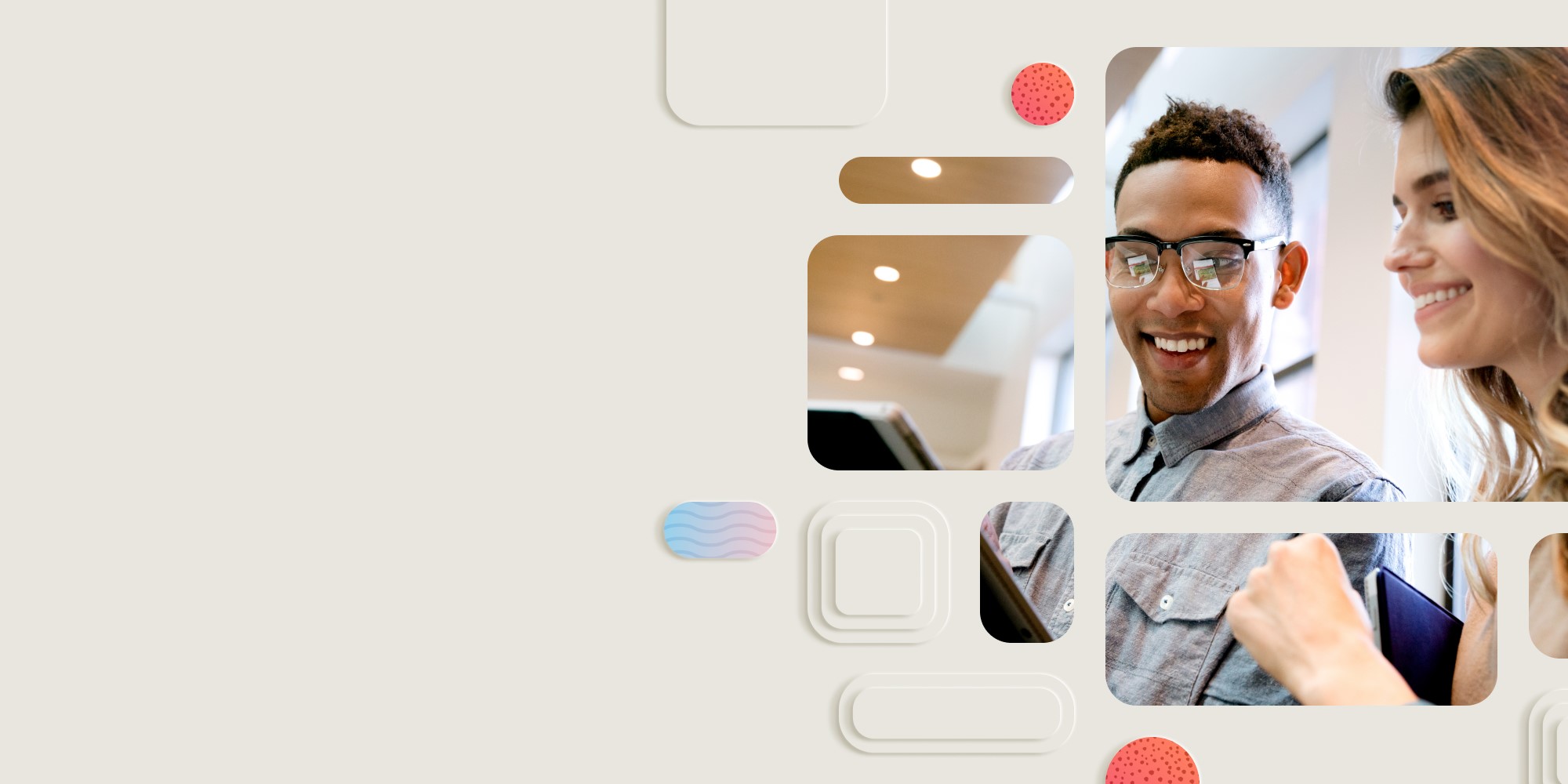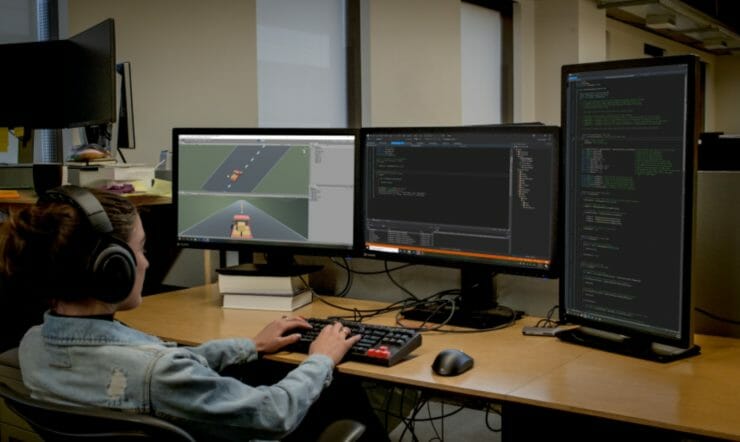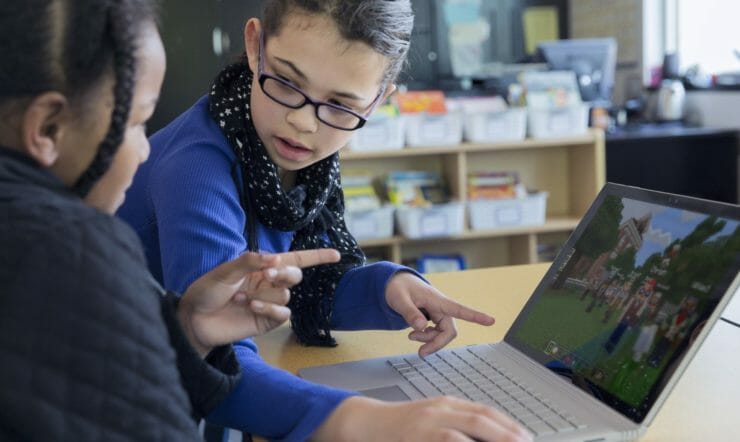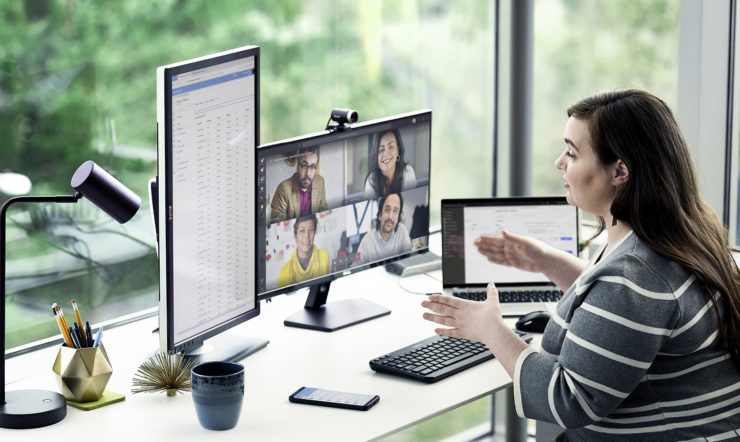The role of educators in society is to empower the next generation for the road ahead. In today’s classrooms, that means equipping students with the skills to allow them to thrive in a digital future.
Already, digital literacy is an integral part of curriculums across Europe, from primary school upwards. For higher education providers, however, there is a need to prepare students for the realities of life beyond the education system – to avail them with technical skills that equip them to succeed in the digital workplace.
But there is evidence that skills aren’t always being taught. As an example, 149 million new jobs will be added to the technology sector by 2025.1 If the skills shortfall cannot be fixed, it is estimated that 4.3 million of those could be left unstaffed by 2030.2 Ensuring that they are filled is clearly a priority, and the benefits of doing so, substantial. In fact, $8.3 trillion in increased productivity could be added to the global economy by 2030 as a direct result of investing broadly in the skills of the future for the current and next generation workforce.3
Microsoft Learn has been created with this goal in mind: to give educators, institutions and students in higher education access to free resources that bridge the skills gap and prepare students for the digital workplaces of the future.
Certified technical skills that meet employer expectations
Digital transformation is clearly impacting the vast majority of organizations across all sectors requiring technical digital skills in their workforce/teams to ensure their future success.
It makes sense then that higher education institutions should provide their students with opportunities to acquire these technical skills before they finish their education and find themselves in the real-world digital marketplace.
91% of hiring managers use certifications as a criterion when evaluating candidates.
A core focus of Microsoft Learn is to provide industry-recognized Microsoft Certifications that students can use to prove their technical know-how to employers. These certifications start with foundational skills, but additional topics are covered ranging from Azure to AI, to data analytics and cybersecurity, so students can acquire the technical skills they’ll need to perform industry roles.
Ready-to-teach curriculum that integrates seamlessly with existing degree paths
A common blocker to the adoption of new curricula in classrooms is the perception that it will detract from existing syllabus. Microsoft Learn has been created in consultation with educators, institutions and students, so that it works alongside existing degree paths, rather than against or at odds with them.
Microsoft Learn for Educators (MSLE) provides everything educators and institutions need to start introducing technical skills into existing degree paths. There are ready-to-teach materials, tools and resources that educators can easily integrate into their existing curriculum.
There is also access to self-paced learning paths and virtual learning days to equip educators to develop the skills needed to teach technical, hands-on curriculum. And for additional support, there is a training program manager that provides support for educators getting started with Microsoft Learn, as well as access to Microsoft Experts and a lively community where educators can share ideas and expand their networks.
Preparing students for the future with Microsoft Learn
Microsoft Learn has already given over 4,500 educators training, technology and tools to prepare students for a future of success. And the students of those tutors are thriving.
Microsoft Learn gives students access to a free learning hub with nearly 3,000 modules, learning paths and training in areas such as data and AI. With free Azure cloud services, and industry-recognized technical certifications, students can learn skills, improve their confidence and increase their earning potential.
For every company in the world today, IT and an understanding of new technologies is absolutely critical. It doesn’t matter what a company does, it or what department you work in – people who understand AI and the Cloud are going to be in demand.*
*Jon Oleaga, Adjunct Professor of Technology Trends and Digital Marketing, and Digital Transformation Consultant at IE University
https://www.youtube.com/watch?v=Eb28xu-CHbo&t=2s
An ever-evolving resource for ever-evolving workplace demands
At Microsoft, we are well aware that best-practices in education are always evolving. Microsoft Learn aims to mirror this evolution. As such, we are developing existing courses, adding new pathways, and listening to the educators and students that are already part of the Microsoft Learn community to ensure that the resources they find in Microsoft Learn are relevant and up-to-date.
For more information on how you can empower educators to excel in their jobs and help jumpstart students’ careers download our free one-page guides:
Sources: 1 ‘Certifications can spark confidence amidst unexpected changes,’ Microsoft, June 21, 2021. 2 ‘2021 Value of IT Certification Employer Report,’ Pearson Vue 2021. 3 ‘WEF: Investing in the skills of future could add $8.3trln to global economy by 2030,’ ZAWAYA, May 25, 2022.














